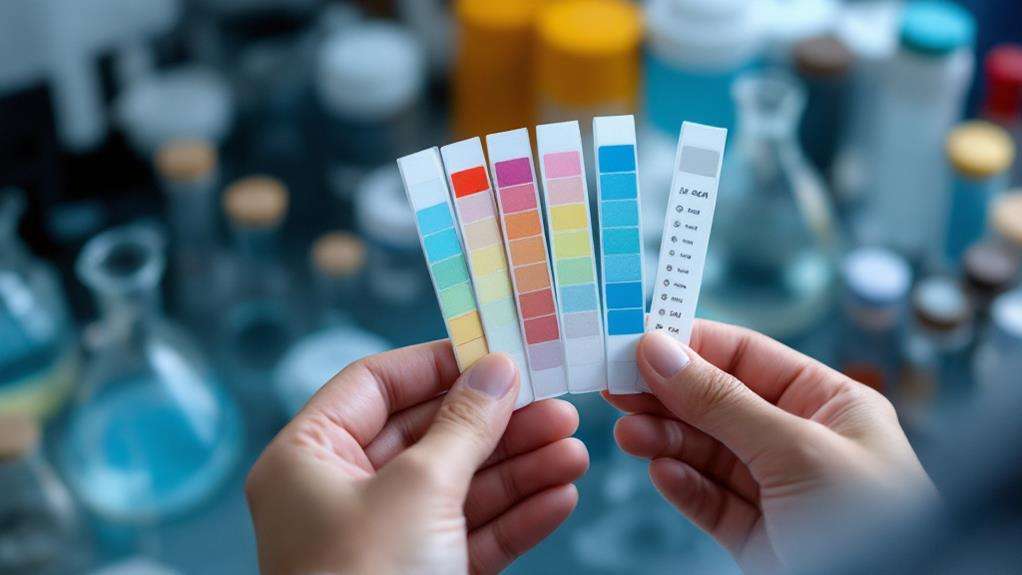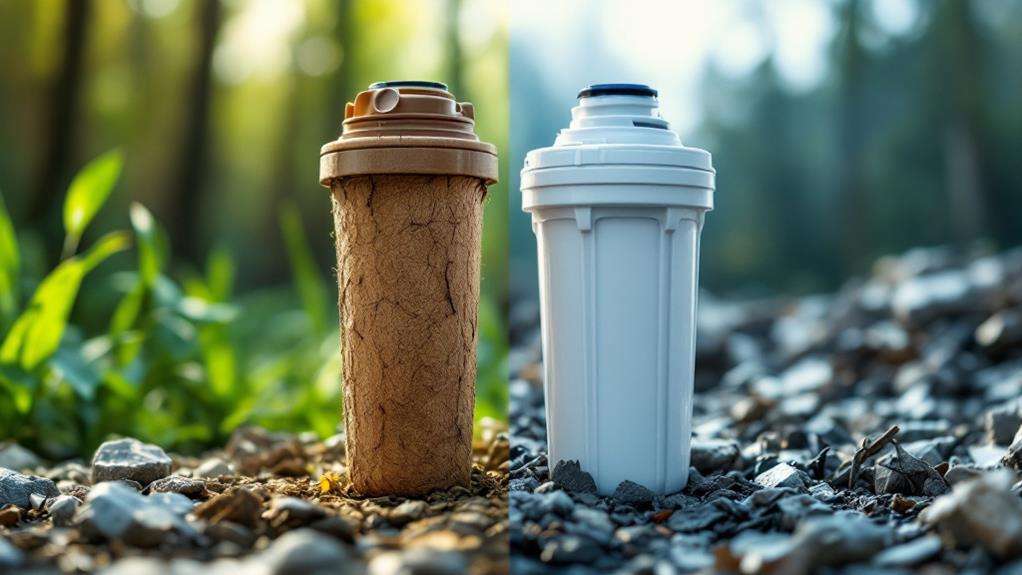Choosing the Right Replacement Filter for Your Water Filtration System
To choose the right replacement filter, start by understanding your water quality and filtration needs. Contemplate the contaminants present in your water and match them with appropriate filter types like activated carbon, reverse osmosis, or UV filters. Guarantee compatibility with your existing system by checking dimensions and connection types. Factor in filter lifespan, maintenance requirements, and long-term costs. Don't forget to ponder eco-friendly options like sustainable filter materials and efficient filtration methods. By assessing these factors, you'll select a replacement filter that provides clean water while aligning with your budget and environmental values. The following information will help you make an informed decision for your specific situation.
Understanding Your Water Filtration Needs
When it comes to choosing the right water filtration system filter, understanding your specific needs is essential. Start by conducting a water test to identify the contaminants present in your supply. This pivotal step will help you determine which filtration technologies are most effective for your situation.
Next, evaluate your household's daily water consumption to guarantee the filter you choose can meet your required flow rate and capacity. Consider the installation requirements of different systems, including available space and any necessary plumbing modifications. This will help you select a filter that fits seamlessly into your home.
Research various filtration technologies, such as carbon, reverse osmosis, and UV light, to understand their effectiveness in removing specific contaminants. Factor in the long-term operating costs, including filter replacement frequency and energy consumption, to find a cost-effective solution that meets your water filtration needs.
Types of Replacement Filters
After selecting your water filtration system, you'll need to familiarize yourself with the various types of replacement filters available. The most common types include activated carbon filters, reverse osmosis filters, UV filters, and ion exchange filters. Each type is designed to target specific contaminants and address different water quality issues.
Activated carbon filters are excellent at removing chlorine, organic compounds, and some heavy metals from your water. If you're dealing with a wide range of contaminants, including dissolved salts and minerals, reverse osmosis filters might be your best option. For those concerned about bacteria and microorganisms, UV filters use ultraviolet light to eliminate these threats. If you're battling hard water, ion exchange filters can effectively remove minerals and soften your water supply.
When choosing replacement filters, consider your specific water quality concerns and the capabilities of your filtration system. It's essential to maintain your filters properly and replace them on schedule to guarantee the continued effectiveness of your system and the safety of your water. By selecting the right type of filter and adhering to proper filter maintenance, you'll ensure that your water filtration system continues to provide clean, safe water for you and your family.
Assessing Water Quality

Before you can choose the right replacement filters for your water filtration system, you'll need to understand your water quality. Start by obtaining a water quality report from your local water utility. This report, often called a Consumer Confidence Report, is required annually by the Environmental Protection Agency and provides detailed information about your tap water's composition.
If you're using well water, consider having it professionally tested. Once you have this information, you can identify which contaminants are present in your drinking water. Common issues include chlorine, lead, bacteria, and hard water minerals. Pay close attention to any harmful contaminants that exceed EPA guidelines.
Next, assess your specific filtration needs. Do you want to improve taste and odor, or are you more concerned about removing specific pollutants? Different filters target various contaminants, so matching your water quality issues with the appropriate replacement filter is essential. For example, activated carbon filters excel at removing chlorine and improving taste, while reverse osmosis systems are better suited for removing a wide range of contaminants, including heavy metals and dissolved solids.
Compatibility With Existing Systems
The most essential factor in choosing a replacement filter is guaranteeing compatibility with your existing water filtration system. When selecting a new filter, you'll need to ponder several key aspects to ensure a perfect fit and optimal performance.
First, check the filter dimensions to make sure it matches your current system's requirements. The size and shape must align precisely for proper installation. Next, verify the connection type, as different systems may have unique attachment mechanisms. You'll also want to confirm the filter's capacity aligns with your water usage needs and system specifications.
To find the right replacement, consult your system's user manual or product specifications. These resources will provide the exact model number and compatibility information you need. Additionally, review manufacturer recommendations for your specific water filtration system to ensure you're selecting an approved filter.
Using an incompatible filter can severely impact your system's effectiveness and potentially compromise water quality. By taking the time to confirm compatibility, you'll maintain the performance of your filtration system and continue to enjoy clean, safe water. Remember, a little research goes a long way in choosing the right replacement filter for your needs.
Filter Lifespan and Maintenance

Once you've found a compatible filter for your system, understanding its lifespan and maintenance requirements is key to guaranteeing long-term performance. Filter lifespan is typically measured in gallons filtered or months of use, with most filters needing replacement every 6-12 months. To maximize your filter's life and maintain ideal water quality, proper filter maintenance is pivotal.
Regularly clean the filter housing and follow manufacturer guidelines for upkeep. When it's time for replacement, always use manufacturer-recommended replacement filters to ensure compatibility and maintain warranty coverage. While it might be tempting to opt for cheaper alternatives, investing in higher-quality filters with longer rated capacities can actually reduce your long-term costs.
To stay on top of filter usage and avoid unexpected breakdowns, consider setting up automated notifications or a maintenance calendar. This will help you track when it's time for filter replacement or cleaning. Remember, a well-maintained filter not only improves water quality but also extends the life of your entire filtration system. By paying attention to filter capacity and staying proactive with maintenance, you'll enjoy clean, filtered water for years to come.
Cost and Value Considerations
When it comes to selecting a water filtration system, cost and value considerations play a pivotal role in your decision-making process. You'll find a wide range of options to suit your household needs and budget, from affordable pitcher filters to high-end reverse osmosis systems.
For a basic solution, pitcher filters and faucet-mounted options offer low initial costs, ranging from $15 to $54. If you're looking for more comprehensive filtration, countertop and under-sink systems provide better water quality at a higher price point, typically between $80 and $500. Whole-house filtration systems, costing $200 to $1,000, offer the most extensive coverage for your entire home water supply.
It's essential to factor in ongoing expenses when evaluating the true cost of a water filter. Replacement filters, needed every three months or 15,000-30,000 gallons, can add $15 to $60 to your maintenance costs. To determine the best value for your situation, consider both the initial investment and long-term expenses. By carefully weighing these factors against your water quality needs and budget, you can choose a filtration system that offers the right balance of cost-effectiveness and performance for your home.
Environmental Impact of Filters

Many consumers overlook the environmental impact of water filtration systems, but it's a critical factor to weigh when making your choice. Whether you're filtering well water or municipal water for drinking and cooking, your decision can considerably affect your carbon footprint.
When selecting a filter, consider options made from sustainable materials like coconut shell carbon. These have a lower environmental impact compared to traditional filter media. Additionally, look for systems that minimize water waste during the filtration process, especially if you're using reverse osmosis filtration or ion exchange methods.
Energy-efficient filtration systems can reduce the carbon footprint associated with water treatment and distribution. Some systems use a semipermeable membrane that requires less energy to operate, making them more eco-friendly.
Opt for reusable filter cartridges that can be cleaned and reused, reducing the need for frequent replacements. This approach minimizes waste and helps conserve resources. When it's time to replace your filter, guarantee proper disposal to prevent contaminants from entering waterways.

